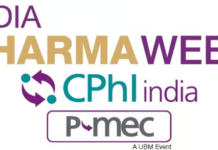Fate of 108 drugs brought under price control in July still unclear
New Delhi, September 25, 2014 – In a booster for pharmaceutical companies, the Government has ensured that the National Pharmaceutical Pricing Authority (NPPA) no longer enjoys sweeping powers to control drug prices.
The NPPA on Tuesday withdrew the guidelines it issued on May 29 that allowed the Authority to control drug prices in public interest. Based on this, it had subsequently capped prices of 108 formulations, including cardiac and diabetes drugs.
But, now, the NPPA has been asked to withdraw the guidelines. The latest notification is silent on the fate of these 108 formulations. And to add to the uncertainty on the price cuts are the two ongoing cases the pharma industry had filed against the NPPA’s move. According to an internal guideline issued by the Authority on September 22, the NPPA moves comes at the direction of the Department of Pharmaceuticals under the Ministry of Chemicals and Fertilisers.
The NPPA, in its May 29 notification, had decided to fix the prices of non-scheduled drugs as well, if there was a huge variation in inter-brand prices.
This notification soon resulted in the prices of 108 non-scheduled drugs, which did not feature in the National List of Essential Medicines, getting capped by NPPA on July 10. This was contested by pharmaceutical companies, many of which took the matter to court on the ground that these drugs did not form part of the national list of essential medicines.
The NPPA had invoked Paragraph 19 of the Drug Price Control Order. Under this, it has the authority to extend price control over medicines outside of the essential medicines list in “extraordinary circumstances” and in “public interest”. The companies also argued that bringing these drugs under a controlled price regime made manufacturing them economically unviable because volumes were low.
On September 18, the Delhi High Court directed the Government and the pharmaceutical companies to resolve the pricing issue expeditiously. Some of the drugs which came under price control following the May order were: Gliclazide, Glimepiride, Sitagliptin, Voglibose, Amlodipine, Telmisartan and Rosuvastatin, Heparin and Ramipril. These have an estimated market of around Rs.5,500 crore.
The latest move will benefit MNCs more than the domestic players as the former usually price their products much higher than the competition and then derive 100 per cent of their sales from the domestic market, said Sarabjit Kour Nangra, Vice-President Research (Pharma), Angel Broking.
Domestic companies that do not have a huge exposure to the local market will be insulated to a large extent as pricing is not the key growth driver for them. “Their products are, therefore, competitively priced,” she added. Business Line






















